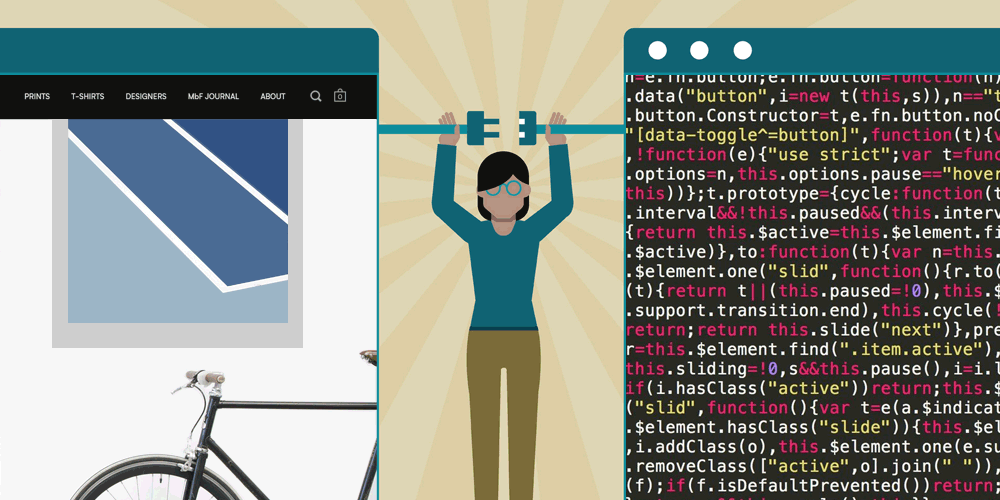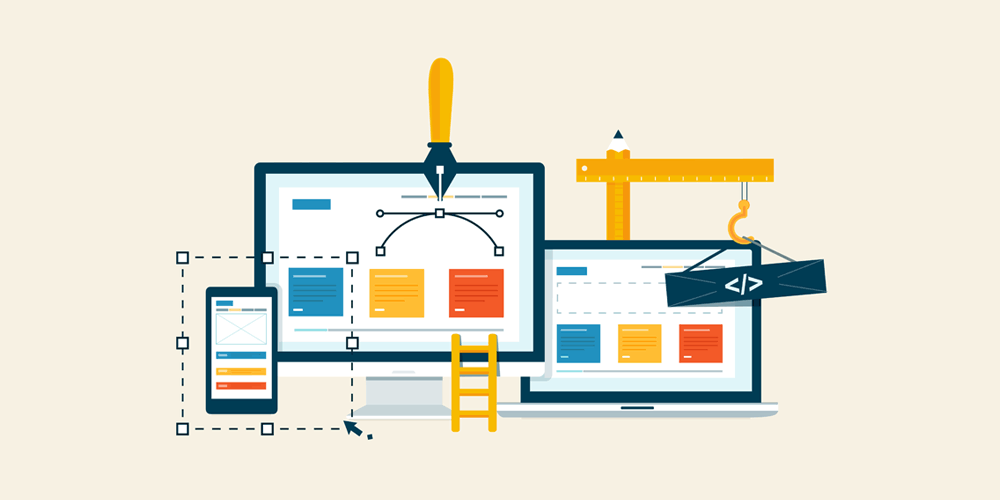Not everyone has the will to code. And when building websites, this is why there are website builders in the market that are meant to do the job for them in the easiest manner possible.
Using WYSIWYG (What You See Is What You Get), even people with the least knowledge for coding can create websites.
This software application is designed specifically to allow people to use drag-and-drop functionality many people have familiarized themselves with, to position graphics elements and text to where they want them.
In the background, the software will generate the needed HTML codes, PHP, CSS and the JavaScript for the website to function.
Simply put, web development and web design have been replaced with a friendly user interface. What this essentially means: no more coding, no more learning.
First of all, there is no problem with that.
Not everyone who wants to create their own website wants to code, or learn how to code. And second, this a lot cheaper than hiring an agency. These reasons explain why there will always be a market for them for website builders.
But here's the catch, despite people can create websites a lot faster with website builders, there is no replacement for pure coding.

The first problem lies in WYSIGWIG.
When the web was young and people were just began learning about the technology, most things were coded by hands, typically using text editor like notepad that has no slick interface, syntax highlighting, and no nothing.
Developers were just presented with a white background, that required developers to manually type in their code and commands.
People back in that time had to experiment with things, simply because online resources weren't many. And even if they had existed, search engines weren’t yet advanced enough nor had they indexed enough of the web to help users effectively find them.
Reading books was the only way for them to understand how to create websites.
It was a daunting task, and yet people lived through the time. As a result, their coding skills allowed them to create products that were clean and efficient.
Not to mention, when the web was young, internet connection wasn't as fast as it is now. Even without the gimmicks of web design, or complex JavaScript, websites that were created from sweat and were indeed computer friendly.
Fast forward as the internet grew larger, people want to improve the daunting process of creating websites.
This is why they created, developed and introduced features like syntax highlighting and code completion to old school text editors. It then progressed to the next step, where WYSIWYG tools were introduced.
Some old school web developers may want to stick with their beloved classic text editors. But more younger developers wannabes or non-developers may be more interested in migrating to WYSIWYG editors because of their simplicity.
Rather than having to learn and remember hundreds of HTML elements, WYSIWYG allows them to create a website as easy as drag dropping elements and typing only a few things.
But that simplicity comes at a price.
When their website is done and launched, they may look amazing and similar to the ones created by developers "handmade".
But know that computers don't work as simple as that. There are tons going on behind the scene that power even the most simplest website. WYSIWYG is great and there is no sin for anyone for using it. But creating any website using WYSIWYG will definitely be slower than hand-coded websites by huge margins.

The reasons are:
- Web browsers advance faster and introduce new and updated technology, faster than the options given by website builders.
- Website builders produce more markup than needed (nested elements), cluttering things, requiring web browsers to waste an amount of time before displaying what's needed.
- Website builders may create their own apps and services that are unique to others in the competition.
- HTML validation errors could translate to less reliable website on different platforms.
- No integration to Content Management System.
- The inability to access the codes directly means that fixing errors or customization is limited.
The HTML markup created by any page builder will always be exponentially more bloated than HTML handcrafted by an expert web developer.
In other words, web builders make web development friendly to the human eyes, but less friendly to computers to understand.
For these reasons, website builders aren't meant for excelling in SEO campaigns.

And as for branding, companies may need to ditch website builders for their own custom website, because:
- They can be Flash-based, meaning that search engines can’t read the pages properly.
- Some website builders are meant for creating a 1-page website.
- The inability to customize meta and URLs for SEO and branding purposes.
- people can only choose from a number of "themes" or color combinations and layout to choose from. With the many using website builders, the choice for uniqueness decreases.
- Website builders can devalue the brand that uses them. On the bottom of the website created by website builders, or somewhere inside the code, there are mentions about the website builders' brand.
- Using website builders may have strings attached. For example, they may show ads to profit the developers of the website builders.
- Less informational analytics data.
Conclusion
Website builders are great, and they really are.
But for those who want to really create websites that are "friendly" for visitors and also search engines, they may want to not use website builders at any cost.
If they can't build a proper website on their own, it's wise for them to hire an agency instead.
Professional web designers don't just build you websites, as they must first learn about you and your business, as well as your expectation and your audience's. It is often necessary to use specific language that the audience to better appeal them.
Building a proper and professionally made website takes time and effort, and it's a continuous work of development and securing.
A Do-It-Yourself website builder won't give you this insight and fine-tune abilities.
Further reading: The Advantages And Disadvantages Of DIY Website Vs. Professionally Developed Website